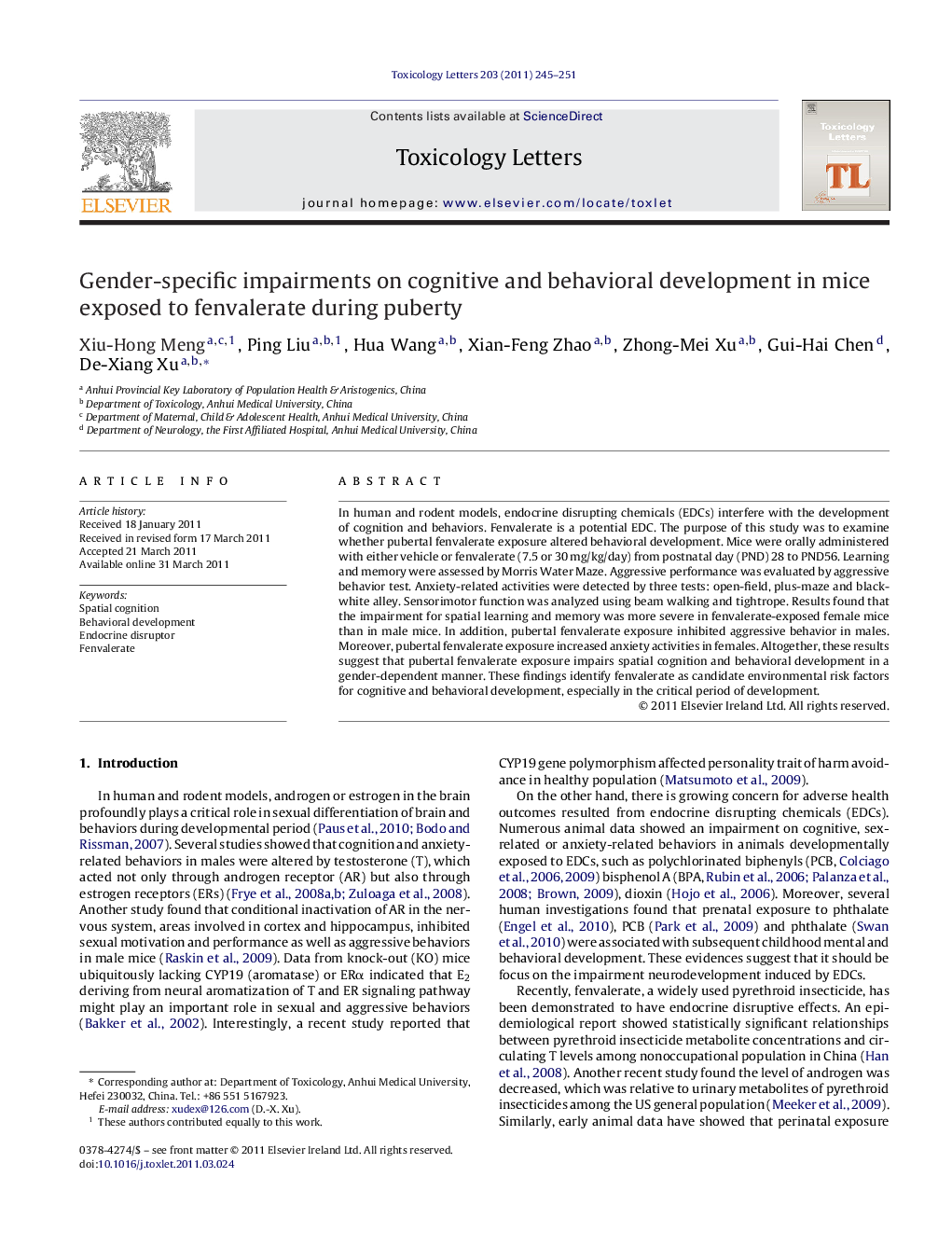| Article ID | Journal | Published Year | Pages | File Type |
|---|---|---|---|---|
| 2600000 | Toxicology Letters | 2011 | 7 Pages |
In human and rodent models, endocrine disrupting chemicals (EDCs) interfere with the development of cognition and behaviors. Fenvalerate is a potential EDC. The purpose of this study was to examine whether pubertal fenvalerate exposure altered behavioral development. Mice were orally administered with either vehicle or fenvalerate (7.5 or 30 mg/kg/day) from postnatal day (PND) 28 to PND56. Learning and memory were assessed by Morris Water Maze. Aggressive performance was evaluated by aggressive behavior test. Anxiety-related activities were detected by three tests: open-field, plus-maze and black-white alley. Sensorimotor function was analyzed using beam walking and tightrope. Results found that the impairment for spatial learning and memory was more severe in fenvalerate-exposed female mice than in male mice. In addition, pubertal fenvalerate exposure inhibited aggressive behavior in males. Moreover, pubertal fenvalerate exposure increased anxiety activities in females. Altogether, these results suggest that pubertal fenvalerate exposure impairs spatial cognition and behavioral development in a gender-dependent manner. These findings identify fenvalerate as candidate environmental risk factors for cognitive and behavioral development, especially in the critical period of development.
